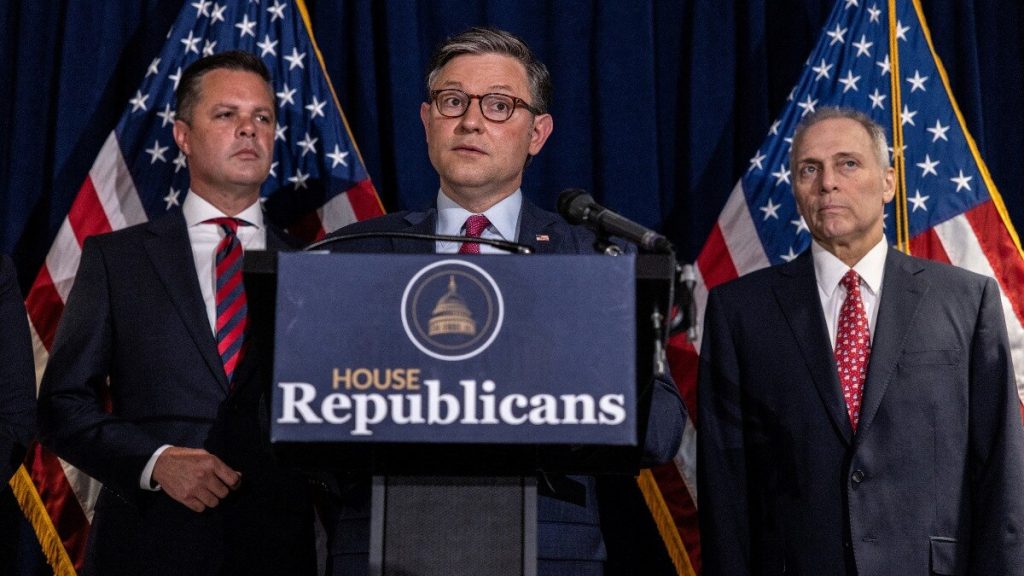Definition
In a significant legislative development, House Republicans have approved an amendment that authorizes the sale of certain federal lands. This decision marks a pivotal shift in the United States’ long-standing land conservation and public access policies. While supporters claim it will boost economic growth and reduce the federal deficit, critics warn it could lead to environmental degradation and loss of public resources.
What the Amendment Proposes
The newly passed amendment allows the federal government to sell specific tracts of public land to private entities. The criteria for sale and the specific lands included will be determined by forthcoming regulations and assessments. The move is part of a broader Republican effort to reduce federal control over land and promote private ownership, particularly in western states where large swaths of territory are federally managed.
Under this amendment, the proceeds from these land sales could be redirected toward deficit reduction, infrastructure spending, or other federal programs, depending on how the legislation is finalized.
Political Backdrop
The decision is deeply rooted in a decades-long debate over land use and federal authority. Republicans, especially those representing western states like Utah, Wyoming, and Nevada, have long criticized federal land ownership, arguing it stifles local economic development, mining, logging, and energy exploration.
Democrats and many environmental groups, however, view the amendment as a direct threat to public lands, national parks, and protected habitats. They argue that once land is privatized, it often becomes inaccessible to the public and vulnerable to overuse, pollution, or exploitation.
Supporters’ Perspective
Proponents of the amendment argue that the federal government owns more land than it can effectively manage. The Bureau of Land Management (BLM), for instance, oversees about 245 million acres of land, much of which is underutilized or costly to maintain.
Supporters claim:
- Economic Growth: Selling land could encourage private development, increase tax revenues, and create jobs in construction, mining, agriculture, and tourism.
- Fiscal Responsibility: The federal government could generate billions in revenue from land sales, helping to reduce the national deficit.
- Local Control: States and local communities would have more autonomy over land use, potentially leading to more tailored and efficient land management practices.
Critics’ Concerns
Opponents raise several concerns, ranging from environmental damage to loss of cultural heritage:
- Environmental Risks: Public lands often contain fragile ecosystems and endangered species. Privatization could open the door to deforestation, mining, and habitat destruction.
- Loss of Access: Hunters, hikers, and outdoor enthusiasts may lose access to lands that were once open to the public.
- Cultural and Historical Impact: Many federal lands include Native American sacred sites, archaeological resources, and historical landmarks that could be at risk under private ownership.
- Lack of Transparency: Critics also argue that the process for selecting which lands to sell lacks transparency and could be influenced by special interests or corporate lobbying.
Public Reaction
The amendment has sparked intense public debate across the nation. Environmental organizations like the Sierra Club and The Wilderness Society have launched petitions urging Congress to reverse the decision. Native American tribes and conservationists have also voiced their opposition, citing risks to sacred lands and biodiversity.
Meanwhile, some rural communities and business groups have welcomed the move, hoping for increased opportunities in agriculture, mining, and tourism-related development.
Legal and Policy Implications
The amendment could also face legal challenges. Some constitutional scholars argue that transferring federal land ownership to private entities may conflict with federal statutes like the Federal Land Policy and Management Act (FLPMA), which mandates that public lands be retained in federal ownership unless disposal serves the national interest.
Moreover, any widespread sale of land may require environmental impact assessments under the National Environmental Policy Act (NEPA), potentially delaying implementation and opening avenues for legal opposition.
Also Read : Trump Administration Finalizes U.S.-U.K. Trade Deal Announcement for Thursday
What’s Next?
The amendment is only one step in a broader legislative process. It must be included in a final bill and pass both the House and Senate before becoming law. Even then, regulatory frameworks and land inventories will be needed to determine which lands are eligible for sale.
Expect ongoing political battles, legal scrutiny, and grassroots activism as the issue unfolds. The 2024 presidential election could also influence the direction this policy takes, depending on which party controls Congress and the White House.
Conclusion
The House Republicans’ approval of this amendment marks a controversial chapter in America’s land management history. Whether it leads to economic revitalization or environmental decline remains to be seen. What’s clear is that the decision will have lasting implications for how Americans interact with their natural heritage—and who gets to control it.
